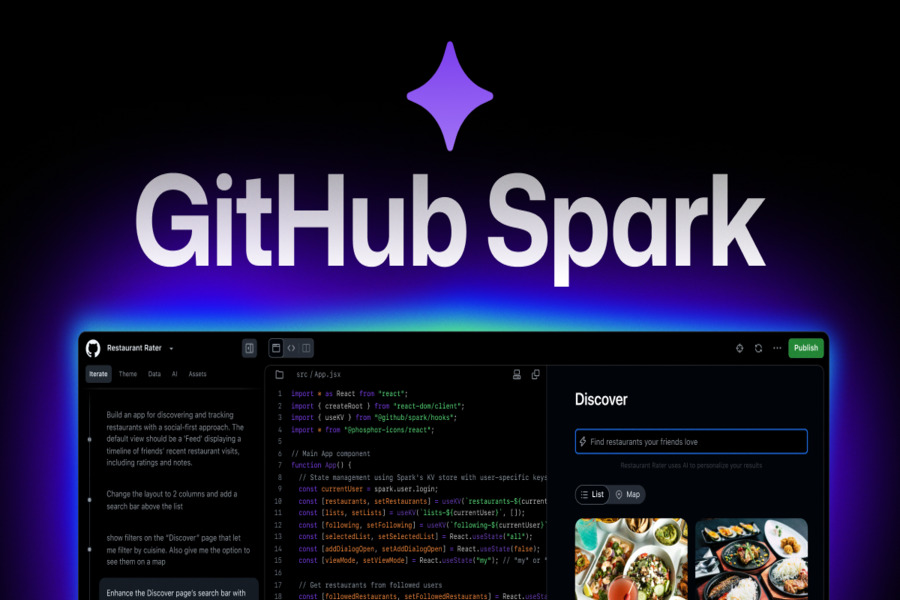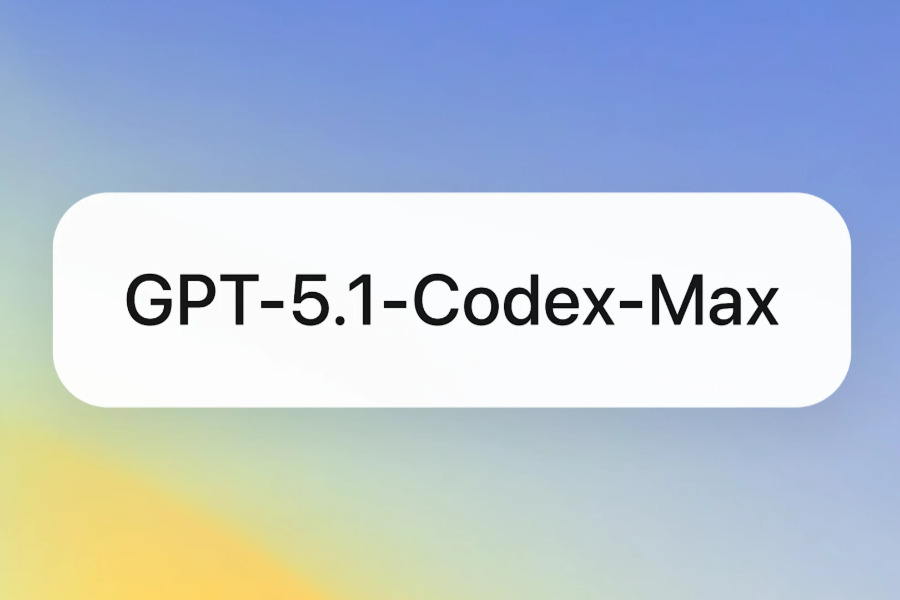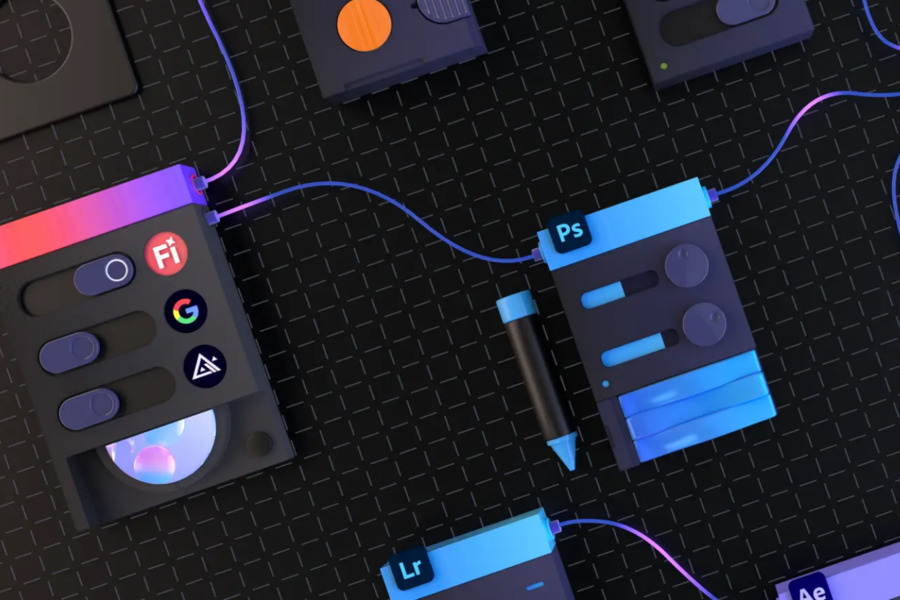GitHub has unveiled GitHub Spark, a groundbreaking AI tool that transforms natural language descriptions into fully functional web applications. This innovative platform empowers both seasoned developers and coding novices to create personalized applications through simple text prompts, dramatically lowering the barriers to software development.
The launch represents a significant evolution in GitHub’s AI strategy, building upon the success of GitHub Copilot to deliver an end-to-end application creation experience.
By leveraging cutting-edge large language models (LLMs) and GitHub’s robust infrastructure, Spark enables users to go from concept to deployed application in seconds—a process that traditionally required days or weeks of coding expertise.
How GitHub Spark Works
GitHub Spark, which debuted as a technical preview at GitHub Universe 2024, is now available in public preview for GitHub Copilot Pro+ subscribers. The platform’s magic lies in its ability to interpret natural language requests—like “build an app to track my monthly expenses” or “create a workout planner with exercise demonstrations”—and instantly generate complete web applications with both frontend interfaces and backend functionality.
Powered by state-of-the-art LLMs, including Anthropic’s Claude 3.5 Sonnet and OpenAI’s GPT-4o, Spark handles everything from UI design to database architecture. The system automatically provisions a fully managed runtime environment, eliminating the need for users to configure servers, APIs, or cloud services.
GitHub CEO Thomas Dohmke emphasized the platform’s democratizing potential: “Spark enables over a billion PC and mobile users worldwide to create and share micro-applications without traditional programming barriers. This isn’t just about making coding easier—it’s about making creation accessible to everyone.”
Key Features of GitHub Spark
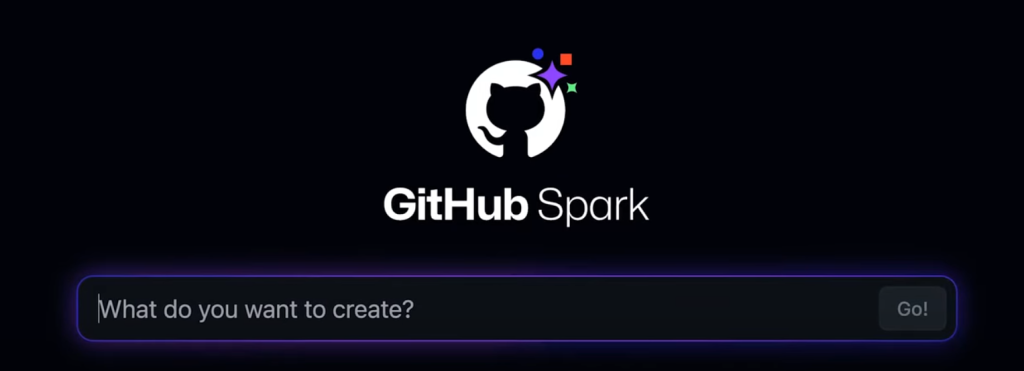
1. Intuitive Natural Language Development
Spark’s natural language editor allows users to describe their application needs in plain English, with the AI generating functional code and providing real-time previews. The platform supports iterative refinement—users can request modifications like “make the interface darker” or “add a calendar view” without touching a line of code.
2. Complete Application Lifecycle Management
Unlike other AI coding assistants that focus solely on code generation, Spark provides an integrated solution encompassing:
- Automatic provisioning of databases and storage
- Built-in theme customization options
- Seamless deployment with one-click publishing
- Progressive Web App (PWA) support for cross-device compatibility
3. Enterprise-Grade Infrastructure
GitHub Spark applications benefit from GitHub’s robust ecosystem, including:
- Version control through GitHub repositories
- Dependency management via Dependabot
- CI/CD pipelines through GitHub Actions
- Optional code editing in VS Code with Copilot agent mode
4. Flexible Model Selection
Developers can choose between different AI models (OpenAI ChatGPT, Anthropic, or Google Gemini) depending on their specific needs for performance, cost, or output characteristics.
The Road Ahead: GitHub Spark’s Future Development
Currently in public preview, GitHub Spark’s development roadmap includes:
- Enhanced API integration capabilities
- Support for more complex application logic
- Expanded template libraries
- Team collaboration features
- Advanced analytics for application usage
GitHub plans to gradually expand access while incorporating community feedback to shape Spark’s evolution. The company is particularly focused on educational applications, seeing Spark as a powerful tool for teaching programming concepts.
How to Use GitHub Spark AI – Build an App in Three Simple Steps
GitHub Spark is designed to be immediately intuitive: even first-time users can be productive in minutes.
Step 1 – Sign-up & Access
Today, Spark is available only to Copilot Pro+ subscribers. Log in with your GitHub account, open the Spark portal, and you are ready to create. The interface strips away the clutter of a traditional IDE; you see only a chat input and a live preview pane, keeping the cognitive load low for newcomers.
Step 2 – Create Your App by Talking to It
Describe your idea in plain English or Chinese—
“Build a to-do list that lets me check items off and sort them by date.”
Within 20–30 seconds Spark returns a working first version and renders it in the preview pane. If the result is not quite right, hit “Generate Variants” to receive 3–6 alternative implementations, each differing in UI layout or functional logic.
Step 3 – Refine
Non-technical users keep refining in natural language:
“Add priority tags to every task.”
Developers can switch to the code view to edit the generated React components directly or use the integrated Copilot agent for deeper debugging. A built-in theme editor lets you adjust colors, fonts, and spacing visually—no CSS required.
When you are ready, click “Publish.” Spark deploys the app to GitHub’s hosting environment and provides a unique URL you can share with teammates or testers. Every published app is automatically backed by a GitHub repository, so AI-generated projects slot naturally into existing enterprise workflows with full version control and collaboration support.
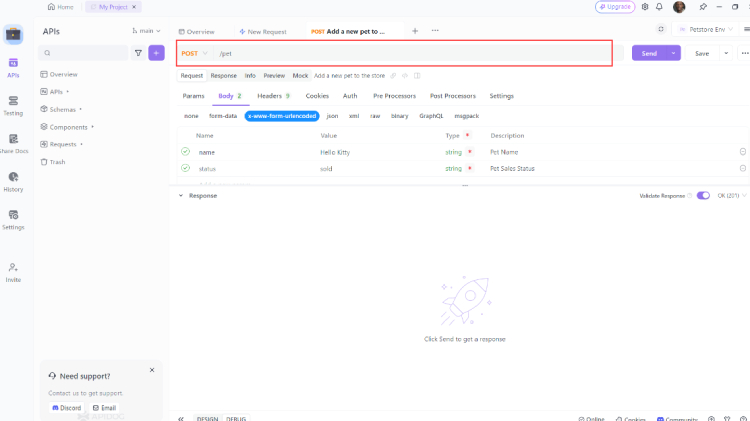
GitHub Spark AI Pricing
GitHub Spark is an AI-first development tool that sits inside the GitHub Copilot ecosystem; its pricing follows the industry trend from free tiers to paid subscriptions.
Access & Subscription
Spark is currently limited to Copilot Pro+ members, priced at US 39 per month. This tier bundles Spark access with 1,500 high-level request credits. Compared to the base Copilot plan, Pro+ also unlocks GitHub’s “best-in-class” models (e.g., GPT-4.5), which carry a 50× multiplier—one interaction can consume up to 50 credits.
Credit Consumption
Spark routes requests to multiple models—Claude Sonnet 4, GPT-4o, and others—each with its own cost coefficient. A complex app generation with Claude 3.5 may burn more credits, whereas a simple feature might use only a handful. You can monitor remaining credits in real time via the Copilot status icon inside the IDE.
Overage Policy
When you exhaust the 1,500 monthly credits, you can wait for the next billing cycle or enable pay-as-you-go at US 0.04 per request. GitHub will never run up charges without your explicit consent; unless you set an expenditure cap, the system simply declines further requests, eliminating surprise bills.
Practical Applications of GitHub Spark Across Industries
1. Education
Teachers can quickly build custom learning tools without IT support. A history instructor might create an interactive timeline generator, while a math teacher could develop a problem set creator with automatic grading.
2. Small Businesses
Owners can develop inventory systems, appointment schedulers, or customer feedback tools tailored to their exact needs without software budgets.
3. Healthcare
Clinics might build simple patient intake forms or medication trackers that integrate with existing systems through Spark’s API capabilities.
4. Community Organizations
Neighborhood groups could create event calendars, volunteer signup sheets, or resource directories maintained by multiple contributors.
Conclusion on GitHub Spa
GitHub Spark marks a watershed moment in software development, potentially enabling millions of non-developers to create custom solutions while supercharging professional developers’ productivity.
By combining natural language processing with GitHub’s robust ecosystem, Spark offers more than just another AI tool—it provides a complete platform for turning ideas into functional applications.
As AI continues reshaping the technological landscape, GitHub Spark stands out as both a practical solution today and a glimpse into a future where software creation is limited only by imagination, not technical barriers.
The platform’s success will depend on how well it balances simplicity with capability, but early indications suggest GitHub may have unlocked a new paradigm in application development.
